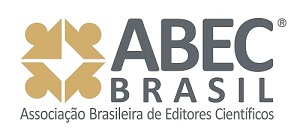STEPPENWOLF REPRESENTING THE MAN OF THE FUTURE
Keywords:
Identity, Herman Hesse, LiteratureAbstract
Modern man is constantly improving and changing his identity. This search is given through the deconstruction and reconstruction of the "self", which is affected by the world and the other. Thus, the novel The Steppenwolf, dialogues with modern criticism which addresses issues related to the constant construction of the individual and the enhancement of the subject of the first half of the twentieth century. Through formal narrative elements such as character and space, we can track how this path is given of the construction of "self" and "selves".
Downloads
References
COMPAGNON, Antoine. O demônio da teoria: Literatura e senso comum. Trad. Cleonice Paes Barreto Mourão. Belo Horizonte: Ed. UFMG, 1999.
COSTA Lima, Luiz. A ficção e o poema. 1ª ed. São Paulo: Companhia das Letras, 2012.
GIDDENS, Anthony. Modernidade e Identidade. Trad. Plínio Dentzien. Rio de Janeiro: Jorge Zahar Ed, 2002.
HESSE, Hermann. O Lobo da Estepe. Trad. Ives Barroso. Coleção: Mestres da Literatura Contemporânea. Rio de Janeiro: Ed. Record, 1995.
HALL, Stuart. El Trabajo de la Representación. In: HALL, Stuart (ed.). Representation: Cultural Representations and Signifying Practices. Traducido por Elías Sevilla Casas. London: Sage Publications, 1997. pp. 13-74. Disponível em: http://metamentaldoc.com/14_El_trabajo_de_la_representacion_Stuart_Hall.pdf. Último acesso em: 5 de janeiro de 2014.
ROSENFELD, Anatol. Reflexões sobre o romance moderno. In: Texto/Contexto. 3ª Ed. São Paulo: Ed. Perspectiva, 1996. pp. 75-97.
Downloads
Published
How to Cite
Issue
Section
License
Copyright (c) 2014 Bruna Arozi Abelin, Maria Eulália Ramicelli

This work is licensed under a Creative Commons Attribution-NonCommercial-ShareAlike 4.0 International License.






